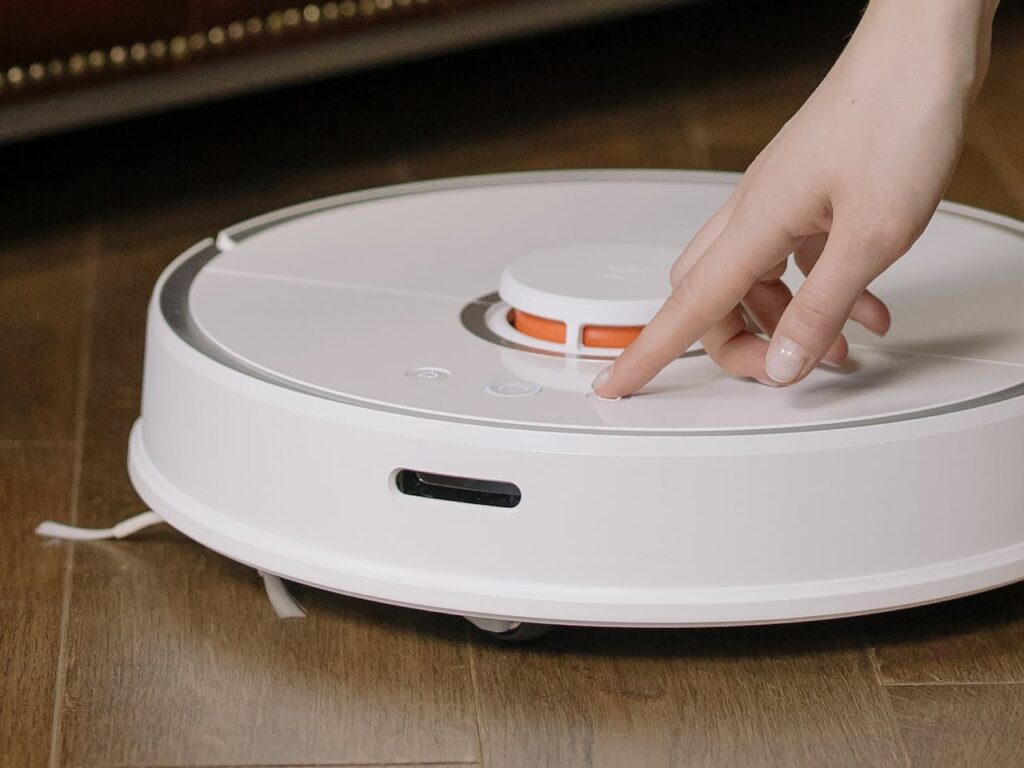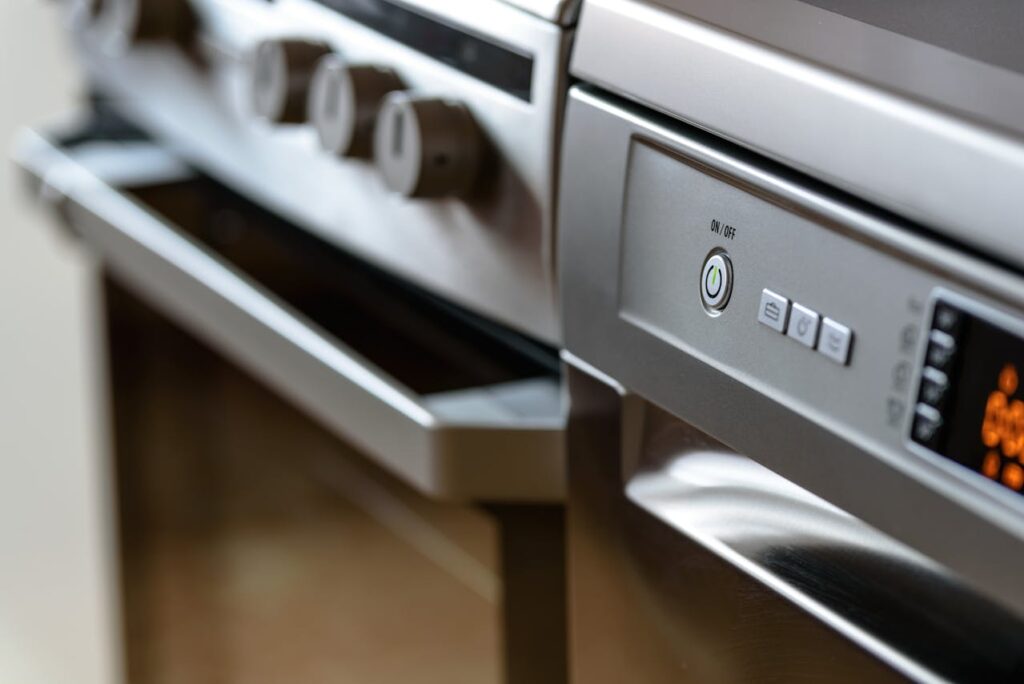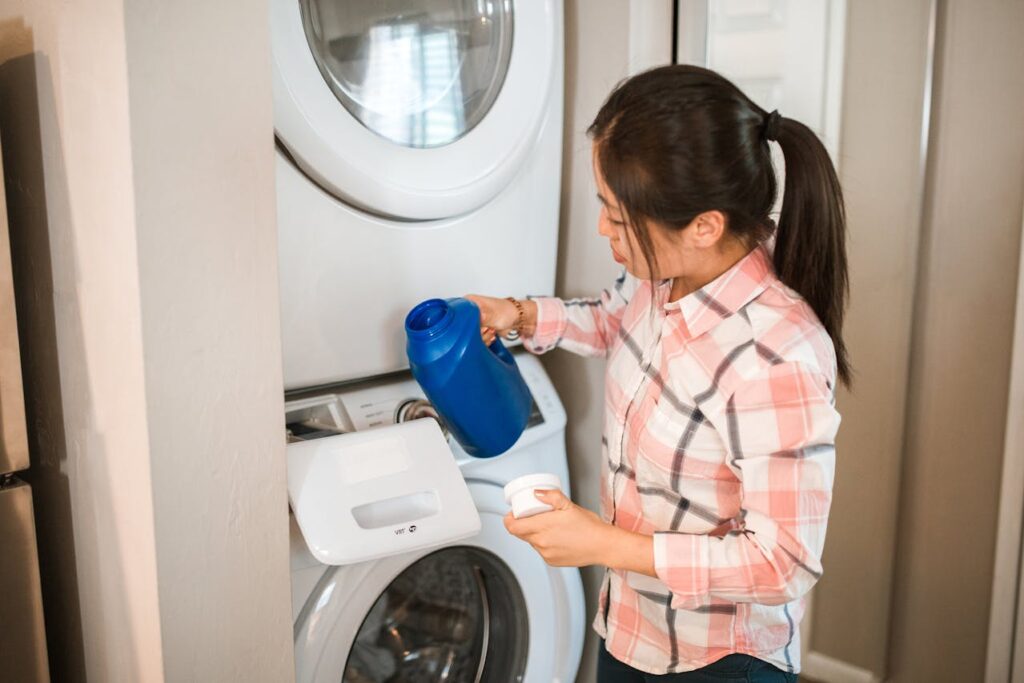Have you ever opened your fridge and noticed it’s not as cold as it should be? Or maybe your washing machine started making a strange noise that wasn’t there before? These could be signs that your appliance is asking for help!
Just like people, machines can get tired, worn out, or even break down.
When that happens, it’s important to know whether a repair will fix the problem—or if it’s time to say goodbye and get a new one.
In this article, we’ll look at the clues signs your appliance needs repair or replacement. We’ll help you understand when a simple fix might do the trick, and when it’s smarter (and sometimes cheaper) to replace the whole thing.
Don’t worry—it’s not as tricky as it sounds!
Key Takeaways
- Strange sounds are red flags. If your appliance starts rattling, buzzing, or grinding, that usually means something’s off.
- Rising energy bills may be a clue. Old or broken machines often use more power than they should, which can sneak up on your wallet.
- Frequent repairs add up. If you’re calling a repair technician more than a couple of times a year, replacement might be a smarter move.
- Poor performance isn’t normal. If your fridge isn’t cold, or your dryer takes forever, the machine isn’t doing its job—and that’s a sign to act.
- Age matters. Most appliances have a life span. If yours is past its prime, it might make more sense to replace it than fix it again.
Why Recognizing Appliance Issues Matters
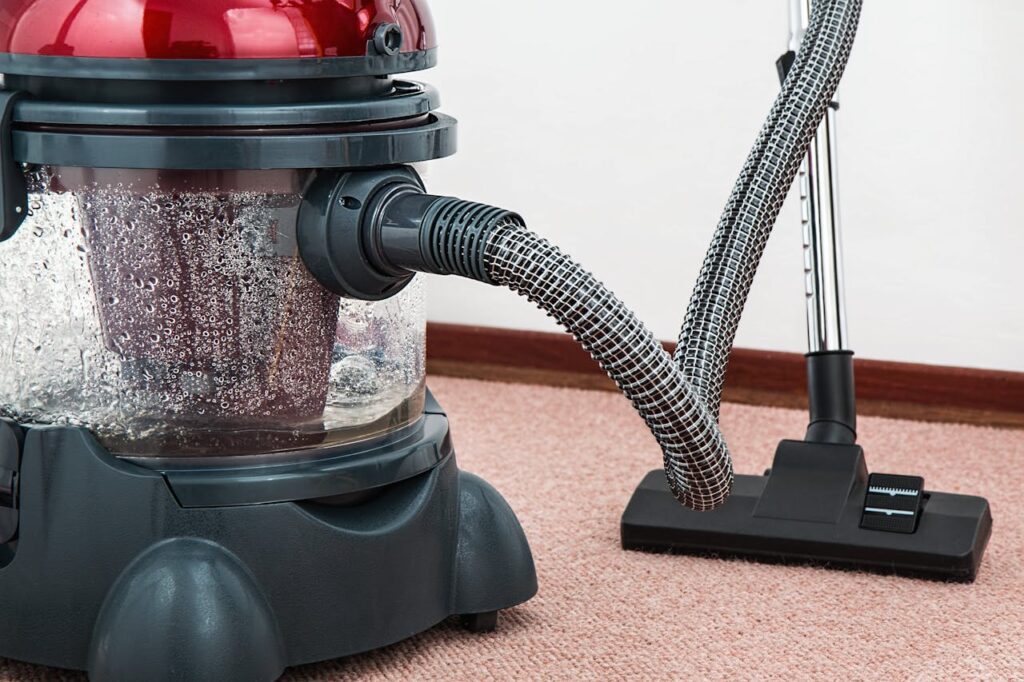
Appliances help us every day. They keep our food fresh, our clothes clean, and our dishes sparkling. When one of them stops working right, it can throw off your whole routine. That’s why it’s important to notice when something changes—especially early on.
Think of your appliance like a car. If your car started making a weird noise, you wouldn’t ignore it for weeks, right? You’d want to find out what’s wrong before it gets worse.
Appliances are the same way. A small problem today can turn into a big, expensive one later.
Spotting issues early can help you:
- Save money by fixing small problems before they grow.
- Avoid bigger damage to your home (like water leaks or power issues).
- Stay safe, since some appliance problems—like frayed wires or gas smells—can be dangerous.
And here’s something to remember: machines don’t fix themselves. If something doesn’t seem right, it probably isn’t. Trust your gut and check it out.
Repair or Replace? The 50% Rule and Other Considerations
So, you’ve noticed a problem. Now what? Should you call for a repair, or is it time to replace the whole thing? This can be a tough choice, but there’s a helpful guide called the 50% rule.
What’s the 50% Rule?
If the cost to fix your appliance is more than half the price of a new one, it usually makes more sense to replace it.
Let’s break that down with an example.
Say your old dishwasher breaks, and a repair will cost $300. A brand-new dishwasher costs $500. Since $300 is more than half of $500, replacing the old one is probably the better deal.
But money isn’t the only thing to think about. Here are other helpful questions:
- How old is the appliance?
Most machines have a life span. If your fridge is 15 years old and acting up, it might be near the end of its journey. - Has it broken down before?
If this is the third time you’ve had to call someone for your dryer, that’s a sign it may be time for a new one. - How well does it work now?
If it’s slow, noisy, or not doing its job well—even after a fix—it might be time to upgrade. - Is it energy efficient?
New appliances often use less electricity and water, which saves you money over time.
Sometimes repairing is the right choice, especially for newer machines or small issues. Other times, replacing saves you from constant problems and higher bills. It’s like choosing between patching a leaky boat or getting a new one that doesn’t let water in at all.
Signs Your Appliance Needs Repair or Replacement
Knowing the warning signs can save you a lot of trouble. Just like people, appliances show symptoms when they’re not feeling their best. Sometimes it’s a quick fix. Other times, it’s the machine’s way of saying, “I’ve done my job—it’s time for a new one.”
Let’s go over 15 signs that your home appliance might need repair—or even a full replacement.
Leaking Water from the Base or Connections

If you spot water pooling under your dishwasher or washing machine, that’s not normal. Leaks might come from loose hoses, cracks, or worn-out seals. Even a small drip can lead to bigger problems like mold or floor damage. This is a clear sign to call an appliance repair service right away.
Sometimes, the cost of repair for a leak is low, but if the machine is older and leaking often, it might be better to replace it.
- Check hoses and connections for cracks or loose fittings.
- Place a towel under the leak to see how much water collects over time.
- Turn off the water supply and power to avoid further damage.
- Call an appliance repair technician if the leak doesn’t stop or gets worse.
Unusual Burning or Electrical Smells Present
A weird burning smell is never a good sign. If you notice this while using your microwave, oven, or dryer, turn it off and unplug it. These smells could mean something is overheating, wires are damaged, or something’s caught inside. Don’t try to fix it yourself—this is a job for a trained repair service.
And if the damage is serious, you’ll need to decide whether to repair or replace based on the repair cost and age of the appliance.
- Unplug the appliance immediately to stay safe.
- Avoid using the appliance until it’s checked.
- Look for scorched outlets or black marks around the plug.
- Contact a professional appliance repair technician for an inspection.
Excessive Noise During Normal Operation
Is your washing machine suddenly dancing across the floor? Or is your refrigerator making loud buzzing sounds? Most machines make some noise, but if it’s louder than usual or sounds like something’s shaking inside, something’s wrong. It might be a loose part or something more serious.
A quick visit from an appliance repair professional can often solve the problem—but if your machine is past its average lifespan, it may be time to start shopping for a new one.
- Listen carefully to locate where the noise is coming from.
- Make sure the appliance is level and balanced on the floor.
- Check for loose screws or parts that might be rattling.
- If the noise continues, have it checked before damage gets worse.
Food Spoils Quickly in Your Fridge
Your refrigerator is supposed to keep your food cold and safe. If milk goes sour too fast or leftovers smell strange, that means the cooling system might not be working right. It’s frustrating, but also important to fix fast, since spoiled food can be dangerous to eat.
Depending on the lifespan of your fridge and how much it costs to fix, you’ll need to decide if it’s smarter to fix it or replace it.
- Use a thermometer to check if the fridge is holding a safe temperature (around 37–40°F).
- Keep the fridge door closed as much as possible.
- Clean the coils in the back to help it cool better.
- If it still doesn’t cool right, call for refrigerator repair help.
Oven Temperature Is Wildly Inaccurate
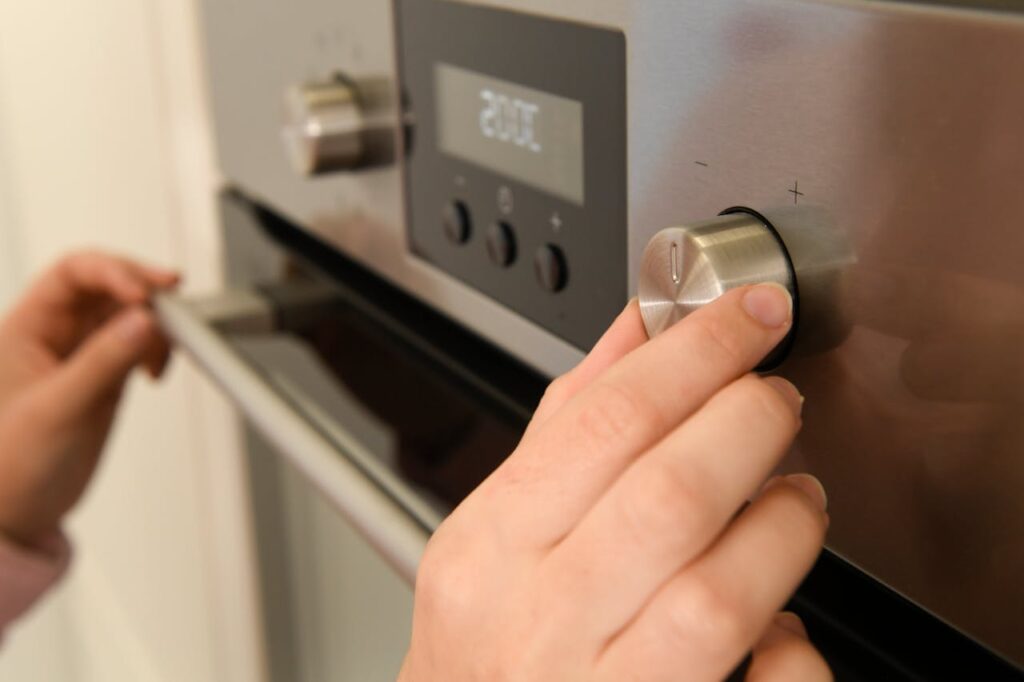
Burnt cookies one day and raw chicken the next? If your oven can’t keep a steady temperature, it’s not doing its job. You might notice that cooking takes longer—or things cook too fast on one side. This could be a problem with the thermostat or heating element.
These parts can sometimes be replaced, but if your oven is older and the repair cost is high, replacing it could be the better deal in the long run.
- Test your oven with an oven-safe thermometer to check for temperature differences.
- Try recalibrating your oven if your model allows it.
- Avoid baking or cooking meals that need precise heat.
- If it stays unreliable, oven repair may be needed.
Dryer Takes More Than One Cycle to Dry
If your clothes are still damp after a full cycle, your dryer isn’t running efficiently. It might be something simple, like a clogged lint trap or vent. But it could also be a bigger issue like a failing heating element or motor.
A professional can tell you what’s going on and whether the appliance repair is worth it. Remember, if drying takes longer, you’re also using more energy—so fixing or replacing the dryer can help your utility bill too.
- Clean the lint filter and check the outside vent for clogs.
- Don’t overload the dryer—it needs space to move air.
- Use shorter cycles for smaller loads to test performance.
- If drying still takes forever, it may be time for a dryer repair.
Dishwasher Leaves Dishes Dirty or Cloudy
If your dishwasher finishes a cycle but your plates still have gunk on them or look foggy, something’s off. It could be a clogged spray arm, a broken soap dispenser, or even low water pressure. Sometimes, using the wrong detergent can cause cloudy glasses too.
A quick fix might help, but if your dishwasher is old and this keeps happening, it may be time to replace an appliance that just isn’t getting the job done anymore. A reliable appliance should leave your dishes clean without extra effort from you.
- Use a rinse aid and make sure the water is hot enough.
- Clean the spray arms and filters to remove food buildup.
- Don’t overload the racks—leave space between dishes.
- Still grimy? A dishwasher repair service can help get it back on track.
Washer Drum Doesn’t Spin or Drain Water
When your washing machine stops spinning or leaves water sitting at the bottom, laundry day can turn into a soggy mess. This could mean the lid switch is broken or the motor is having trouble. These are common problems, and some can be repaired easily.
But if your washer is getting older, think about how long it’s been in service. Knowing the lifespan of your appliances can help you decide if fixing it makes sense—or if you should look at a new model instead.
- Check if the load is too heavy or unevenly placed.
- Inspect the drain hose for clogs or bends.
- Try resetting your machine if it has an error code.
- No luck? Call a washer and dryer repair technician.
Microwave Buttons No Longer Respond
When you press a button on the microwave and nothing happens, it can be really annoying. Maybe one button works, but the others don’t. This could be a problem with the touchpad or control board. Microwaves are tricky to fix and sometimes not worth the cost.
Since the cost of a new appliance like a microwave is often low, replacing it might be easier—and safer—than trying to repair it.
- Unplug and plug it back in to reset the control panel.
- Clean the keypad with a soft cloth in case of residue buildup.
- Try pressing other buttons to see if it’s a full panel issue.
- If the problem continues, it’s best to get a professional’s help.
Ice Maker Stops Producing Ice Entirely
Opening your freezer to find an empty ice tray can be disappointing—especially on a hot day. If your ice maker just stops making ice, the water line might be blocked, or the motor could be worn out. You can try a quick reset or check the line, but if it keeps failing, repairs can add up fast.
In some cases, replacing the ice maker alone is possible, but other times, it means fixing more than it’s worth. Regular cleaning and checking for clogs can help extend the life of your ice maker and keep it running smoothly.
- Make sure the water supply line is turned on and not kinked.
- Check the freezer temperature—it should be below 10°F.
- Defrost the ice maker if it’s frozen over.
- If ice is still missing, it could be time for repair or replacement.
Cooktop Burners Won’t Ignite or Heat
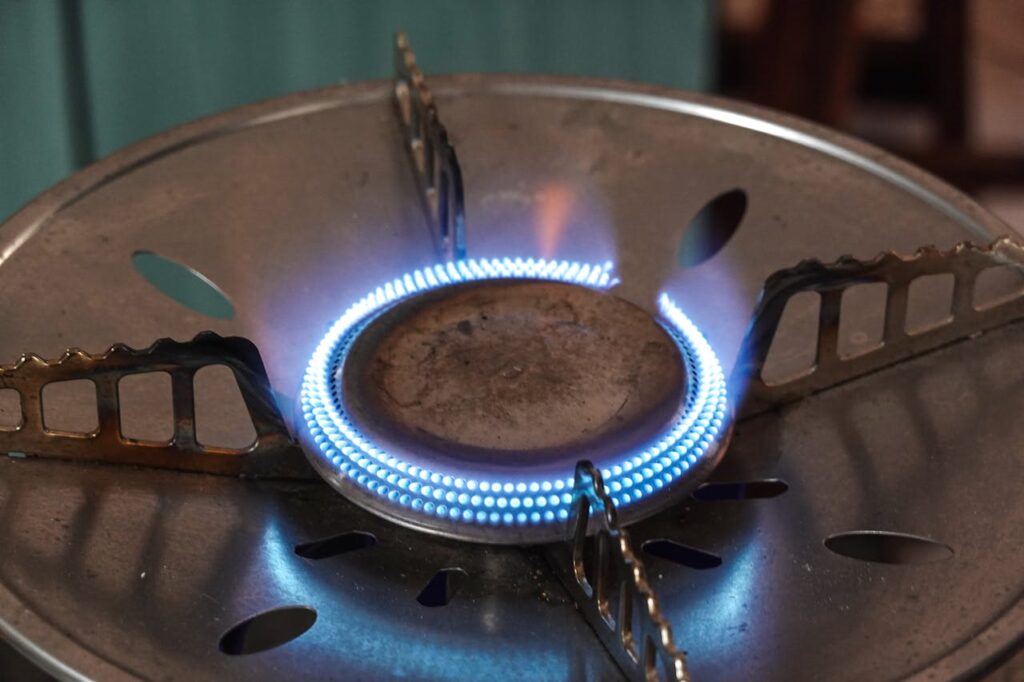
A burner that won’t light or heat up can bring dinner plans to a halt. For gas stoves, it might be a dirty igniter or clogged burner. For electric stoves, a broken heating element could be the issue. You can try cleaning first, but if nothing works, you may need a technician.
If multiple burners stop working, and your stove is near the end of its life, replacing it might save you time and money. It’s always good to have a reliable appliance when you’re trying to cook dinner without surprises.
- Clean around the burner heads and igniters.
- Check for food spills that might be blocking the flame or element.
- Make sure the burner caps are sitting properly.
- If it won’t heat at all, it might need a part replacement or repair.
Freezer Builds Up Frost Rapidly
If you open your freezer and feel like you’re stepping into a snowstorm, there’s probably too much frost building up. This might mean the door isn’t sealing properly or the defrost system has failed. Too much frost can block air flow and make your freezer work harder than it should.
That extra work can shorten the lifespan of your appliances and raise your energy bill. Keeping the seals clean and the door shut tight can help, but if the frost keeps coming back, it might be time to consider an upgrade.
- Check that the freezer door is sealing tightly.
- Avoid keeping the door open too long.
- Defrost the unit fully, then turn it back on.
- If the frost keeps coming back, you might need a technician to check for issues.
Appliance Trips Your Breaker Often
If every time you run the microwave or washing machine, your lights go out or the breaker flips, that’s a big red flag. This usually means the appliance is pulling too much power—or has a wiring problem. It’s not just annoying, it can be dangerous.
A malfunctioning appliance like this should be checked by a professional right away. Sometimes it’s a simple fix, but if it happens a lot, it might be time to think about replacing it before bigger problems happen.
- Avoid using other high-power items on the same circuit.
- Check the cord and plug for damage.
- Don’t plug the appliance into an extension cord or power strip.
- This might signal a malfunctioning appliance, so get it looked at.
You See Visible Rust or Corrosion Forming
Rust may not seem like a big deal at first, but it’s a sign that moisture is getting into places it shouldn’t. Over time, rust can eat away at metal parts and cause serious damage. You might see it on your dishwasher racks, around the base of your washing machine, or even on the outside of your fridge.
Once corrosion sets in, finding replacement parts might not be worth the trouble. This kind of wear usually means the life of your appliance is nearing the end.
- Wipe down moisture regularly to slow rusting.
- Use vinegar or rust remover for surface spots.
- Keep appliances dry and well-ventilated.
- If rust spreads deeply, it may affect performance and safety.
Energy Bills Spike Without New Usage Habits
If you’re using your appliances the same as always, but your power bill shoots up, something could be wrong. A malfunctioning appliance might be working overtime just to keep up—and using way more energy than it should. Older machines are more likely to waste electricity, especially if they haven’t had regular maintenance.
Swapping out an old appliance for a newer, energy-efficient model might save you more money over time than trying to keep the old one going.
- Check if older machines are running more than usual.
- Clean vents, filters, and coils to help efficiency.
- Use smart plugs to track energy use per appliance.
- If one appliance is draining power, it may need a tune-up or upgrade.
Appliance Vibrates or Shakes Excessively
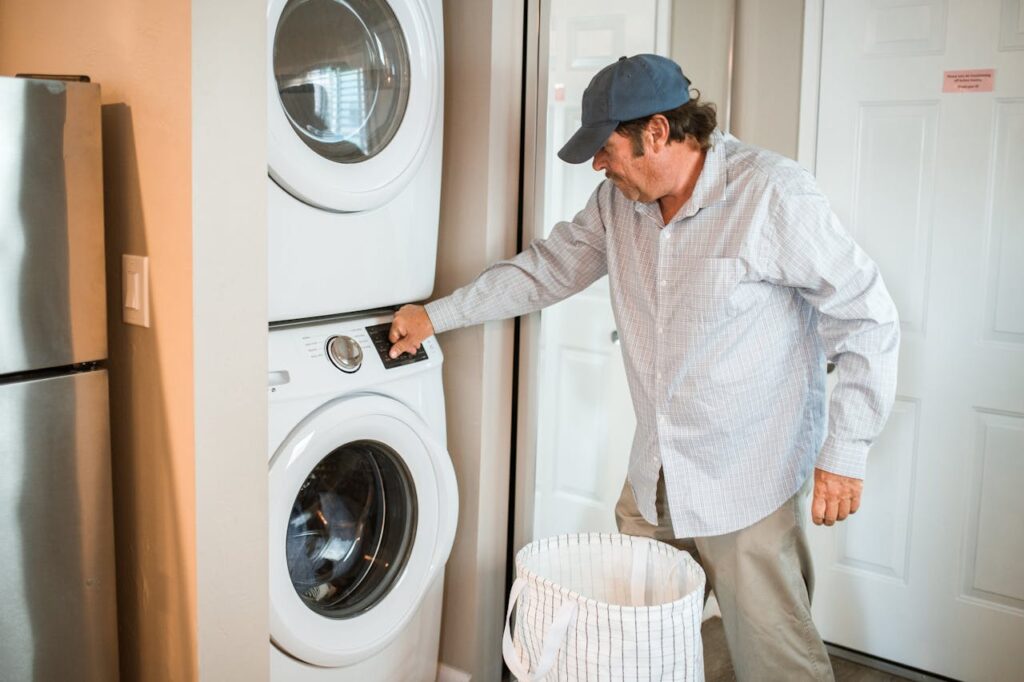
A little movement during a wash or spin cycle is normal—but if your machine starts bouncing like it’s trying to break dance, that’s a problem. This usually means something’s unbalanced, like the load inside, or there could be a loose part. Sometimes it’s just a quick fix, like adjusting the feet of the machine.
But if the shaking keeps happening, it might be a sign of deeper issues. Long-term shaking can damage the inside parts and shorten the life of your appliance.
- Make sure the appliance is level and all feet are on the floor.
- Try placing a rubber mat underneath to reduce movement.
- Avoid overloading washers or dryers.
- If shaking continues, internal parts may be worn or loose.
Digital Display Is Blank or Flickering
When the screen on your oven or microwave goes dark or starts flickering, it can be tricky to know what’s wrong. It might be a power supply issue, a shorted circuit, or just a worn-out control panel. If the display works sometimes and not others, that’s another clue something’s failing inside.
For older machines, finding replacement parts can be hard or expensive. If the display controls the main functions, it might be safer and easier to replace the whole unit.
- Check that the appliance is securely plugged in.
- Try resetting the circuit breaker or control panel.
- Inspect the power cord for wear or fraying.
- If the display still won’t work, the control board may need replacement.
Buttons or Knobs Are Loose or Unresponsive
You twist a knob… nothing happens. Or you press a button, and it sticks. These little parts take a lot of use over the years, and sometimes they just wear out. If only one is loose, a simple repair might fix it. But if several buttons or knobs stop working, or if the machine doesn’t respond at all, you’re probably dealing with a bigger problem.
This kind of issue can also make it unsafe to use the machine, and it might be time to consider replacing an old appliance that’s showing its age.
- Gently tighten any knobs that feel loose.
- Remove and clean around stuck buttons or dials.
- Avoid forcing knobs that don’t turn easily.
- If controls won’t work at all, it might be time for professional appliance repair.
Conclusion
Appliances don’t last forever, but they often tell us when something’s going wrong. Paying attention to these signs your appliance needs repair or replacement can save you time, money, and a lot of stress.
Whether it’s a noisy dryer, a leaking dishwasher, or an oven that just won’t heat up, knowing what to watch for helps you make better choices.
And fortunately? You don’t need to be an expert to understand your appliances—you just need to listen, look, and learn a little.
FAQs
1. How do you determine if you should repair or replace a machine?
Start by comparing the cost of the repair to the price of a new appliance. If repairs cost more than half the price of a replacement, or the machine is older than its expected life, replacement may be more cost-effective.
2. When should you replace an appliance?
You should replace an appliance when it’s past its average lifespan, repairs are frequent or expensive, or it’s no longer energy-efficient. Replacing your appliance can save you money over time.
3. How do I know if my refrigerator needs to be replaced?
If your fridge runs constantly, makes loud noises, spoils food, or leaks, it might be time to consider refrigerator repair or replacement, especially if it’s over 10 years old.
4. Is it better to repair or replace an appliance?
Repair is often the right choice if the issue is minor and the appliance is under 5 years old. But if you’re dealing with frequent issues or high costs, replacement is often smarter.
5. What are signs that my appliance might need repair?
Common warning signs include strange noises, water leaks, burning smells, or poor performance. If something feels “off,” it’s time for repair or a checkup.
6. How much does appliance repair usually cost?
The appliance repair cost depends on the type of appliance and issue. Small fixes might cost under $100, while major repairs can go over $500. Ask for a quote before agreeing.
7. Should I repair my dryer or get a new one?
If a dryer repair is simple and the machine is under 8 years old, repair it. But if it takes multiple cycles to dry or makes loud noises, replacement may be more cost-effective.
8. What if my appliance is still under warranty?
If your appliance is still under warranty, contact the manufacturer or a certified appliance repair technician. Many repairs will be free or much cheaper when covered.
9. Can professional repair extend the life of my appliance?
Yes! Regular maintenance and professional appliance repair help keep things running longer. Catching issues early can extend the life of your machines.
10. Who should I call for appliance repair?
Call a reliable appliance repair service or a professional appliance repair technician. Check reviews and make sure they’re certified for your specific household appliance.
11. Why is my appliance shaking or making loud sounds?
This usually means something’s loose or off-balance. These are signs of wear and tear. If the noise keeps happening, opting for a repair is a good first step.
12. Is it worth repairing an old appliance?
Sometimes. If it’s working fine otherwise and the repair is cheap, go for it. But if it’s an old appliance and breaks down often, investing in a new one might make more sense.
13. What if I can’t find replacement parts?
Finding replacement parts for older models can be tough. If parts are expensive or unavailable, replacing the appliance might be the only option.
14. How can I keep my appliances from breaking down?
Do regular appliance maintenance, clean filters, and don’t overload machines. This helps prevent issues and ensures your appliance can save you money by lasting longer.
15. What’s the first thing to do when an appliance breaks?
Unplug it, stay safe, and check the manual. If you’re unsure whether to repair or replace, call a local appliance repair company to assess and repair the issue.

